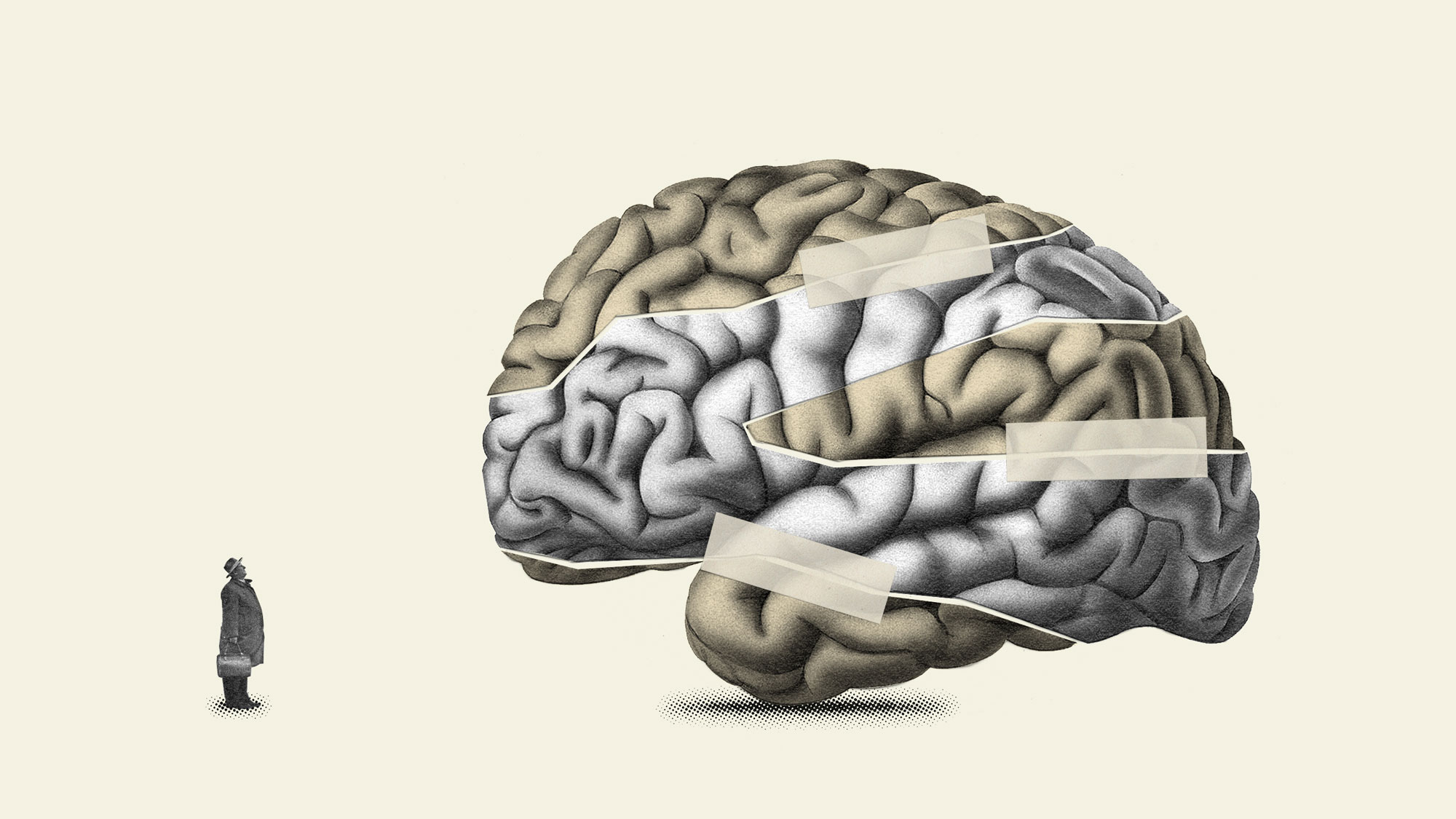Managing your stress is an important part of preventing migraines. Migraines can be caused by or made worse by stress. Stress can also make migraines worse and last longer.
Relaxation techniques, exercise, and cognitive-behavioral therapy are all ways how to prevent migraines. Migraines can also be stopped by figuring out what sets them off and staying away from them.
Stress management is a key part of how to prevent migraines, and people who get migraines should use stress management techniques to cut down on how often and how bad their headaches are.
Understanding Migraines
Migraines cause severe headaches, nausea, vomiting, and light and sound sensitivity. The specific cause of migraines is unknown. However, a combination of genetic and environmental factors are suspected, which influence the brainstem and trigeminal nerve electrical systems. Food, hormonal fluctuations, stress, and environmental factors, including weather and altitude, are common triggers.
Causes of migraines and the risk factors involved
Migraines are caused by changes in the brainstem and trigeminal nerve, with triggers including certain foods, hormonal changes, stress, and environmental factors. Risk factors include family history, being female, and certain medical conditions such as depression and anxiety. Lifestyle factors such as lack of sleep, poor diet, and a sedentary lifestyle can also increase risk.
The Connection between Stress and Migraines
Stress is a common trigger for migraines, and it can also make migraines worse. It can create brain alterations that cause migraines. Stress also worsens and prolongs migraines. Relaxation and cognitive-behavioral therapy are the ones when you are looking for how to prevent migraines.
How stress can trigger migraines
Stress is a common trigger for migraines. When a person experiences stress, their body releases certain hormones and chemicals that can cause the blood vessels in the brain to constrict and then dilate. This can lead to the development of a migraine headache. Stress can also affect the severity and duration of migraines.
The impact of chronic stress on migraines
Chronic stress can have a significant impact on migraines. The constant release of stress hormones can lead to a change in the way the brain processes pain, making migraines more frequent and severe. Chronic stress can also make it more difficult for a person to cope with a migraine once it has developed.
Importance of addressing stress in migraine prevention
Getting rid of stress is an important part of how to prevent migraines. Relaxation techniques, exercise, and cognitive-behavioral therapy are all ways to deal with stress that can help reduce stress and make migraines less frequent and worse.
Migraines can also be stopped by figuring out what sets them off and staying away from them. So, it’s important to deal with stress if you want to effectively treat migraines and keep them from happening in the first place.
Stress Management Techniques
Stress is a common trigger for migraines, and it can also make migraines worse. Therefore, stress management is an important aspect of migraine prevention, as reducing stress can help reduce the frequency and severity of migraines.
Various stress management techniques
Here are some of the techniques that can help you manage your stress without any medications.
a. Mindfulness
Mindfulness practices such as meditation and yoga can help individuals become more aware of their thoughts and feelings and develop strategies to manage them.
b. Relaxation
Relaxation techniques such as deep breathing, progressive muscle relaxation, and visualization can help reduce stress and tension in the body.
c. Exercise
Regular exercise can help reduce stress and tension in the body, as well as improve overall physical and mental health. Aerobic exercise, such as walking, running, or swimming, can be particularly beneficial for stress management.
Incorporating stress management techniques into daily life
How to prevent migraines and keep stress levels in check, it’s important to use stress management techniques every day.
- Meditation and yoga are examples of mindfulness practices that can help people become aware of their thoughts and feelings and figure out how to deal with them.
- Relaxation techniques, like deep breathing, progressive muscle relaxation, and visualizing, are other ways to help the body feel less stressed and tense.
- Regular exercise is also important for stress management because it can help reduce stress and tension in the body and improve overall physical and mental health.
- Aerobic exercise, like walking, running, or swimming, can be especially helpful for dealing with stress.
- Cognitive-behavioral therapy can help people figure out what their stressful negative thoughts and beliefs are and try to change them. This can also help you find and stay away from triggers. Migraines can also be stopped by figuring out what sets them off and staying away from them.
By using these techniques on a regular basis, people can learn how to prevent migraines, which can help them avoid migraines and lower their stress levels.
It’s important to remember that the best ways for one person to deal with stress might not work for another. Find what works best for you and make it a regular part of your life. It’s also important to remember that it takes time to form a new habit, and it’s okay to be patient with yourself.
Benefits of Stress Management for Migraine Prevention
Stressing about your migraines can be detrimental to your physical and mental health. Even if you aren’t managing them well, stress management is still important. You may not see the immediate results of stress management, but the long-term benefits are worth it.
Stress management can help with:
More stable moods
Stress can make migraines worse. It can also disrupt your sleep patterns and affect your appetite. Stress management helps you maintain a stable mood and helps you feel better when you’re having a migraine.
Better physical health
Stress management helps you get more restful sleep, which makes it easier for your body to heal from any injuries or illnesses. It also helps you manage your weight better, so that when you do have a migraine, it doesn’t have as much of an impact on other aspects of your life.
Sleep better
Stress often keeps people up at night, which makes it harder for them to fall asleep and stay asleep through the night. Stress management teaches you how to get a good night’s rest by relaxing before bedtime and using relaxation techniques before bedtime as well as during the day when needed (such as breathing exercises). Stress management also teaches you how to cope with stressful situations so they don’t interfere.
Help You Manage your migraines and other types of headaches.
Stress is a major factor in migraine. Stress may be physical or emotional, and it can trigger a migraine attack. Thus, stress management has a crucial role to play when it comes to managing your migraines.
Better physical health
Stress also increases your risk for chronic diseases like high blood pressure, heart disease and diabetes. Chronic stress increases your risk for obesity and other conditions such as heart disease, stroke and Type 2 diabetes. These diseases are also associated with migraines! Thus, it is highly important to manage stress for migraine prevention.
Combining Stress Management and Medical Treatment
Combining stress management techniques like relaxation and cognitive-behavioral therapy with medical treatments like medication, nerve blocks, and Botox injections can greatly reduce the number and severity of migraines. It’s important to work with a doctor to make a personalized plan that includes both ways to deal with stress and medical treatments to stop migraines.
Treatments available in combination with stress management techniques
Migraines can be treated in a number of ways, such as with medicine, nerve blocks, or Botox injections. For the best results in preventing migraines, these treatments can be used with techniques for dealing with stress. It is important to work with a medical professional to find the right combination of treatments for you.
Creating a comprehensive plan for migraine prevention
A complete plan to stop migraines should include both ways to deal with stress and medical treatments. This can include finding triggers and staying away from them, practicing relaxation techniques, and taking medication as a doctor tells you to. By using all of these methods, people can effectively prevent and treat migraines.
Conclusion
Migraines are a disorder of the nervous system that can make people very sick. Migraines are often brought on by stress, and stress can also make them worse. People can take steps to prevent migraines and deal with them better if they know what causes them and what makes them more likely to happen.
Combining stress management techniques like relaxation and cognitive-behavioral therapy with medical treatments like medications, nerve blocks, and Botox injections can be a very effective way how to prevent migraines.
It is important to work with a healthcare professional to make a plan that is tailored to your needs. Overall, the best way to prevent and treat migraines is to deal with stress and work with a medical professional.
IF YOU HAVE HEADACHE, MIGRAINE, OR FACIAL PAIN AND ARE LOOKING FOR ANSWERS ON ANYTHING RELATED TO IT, A HEADACHE SPECIALIST IS HERE TO HELP, FOR FREE!
FIRST, LET’S DECIDE WHERE TO START:
IF YOU HAVE AN EXISTING HEADACHE, MIGRAINE, OR FACIAL PAIN DIAGNOSIS AND ARE LOOKING FOR THE LATEST INFORMATION, HOT TOPICS, AND TREATMENT TIPS, VISIT OUR FREE BLOG OF HOT TOPICS AND HEADACHE TIPS HERE. THIS IS WHERE I WRITE AND CONDENSE A BROAD VARIETY OF COMMON AND COMPLEX MIGRAINE AND HEADACHE RELATED TOPICS INTO THE IMPORTANT FACTS AND HIGHLIGHTS YOU NEED TO KNOW, ALONG WITH PROVIDING FIRST HAND CLINICAL EXPERIENCE FROM THE PERSPECTIVE OF A HEADACHE SPECIALIST.
IF YOU DON’T HAVE AN EXISTING HEADACHE, MIGRAINE, OR FACIAL PAIN DIAGNOSIS AND ARE LOOKING FOR POSSIBLE TYPES OF HEADACHES OR FACIAL PAINS BASED ON YOUR SYMPTOMS, USE THE FREE HEADACHE AND FACIAL PAIN SYMPTOM CHECKER TOOL DEVELOPED BY A HEADACHE SPECIALIST NEUROLOGIST HERE!
IF YOU HAVE AN EXISTING HEADACHE, MIGRAINE, OR FACIAL PAIN DIAGNOSIS AND ARE LOOKING FOR FURTHER EDUCATION AND SELF-RESEARCH ON YOUR DIAGNOSIS, VISIT OUR FREE EDUCATION CENTER HERE.


